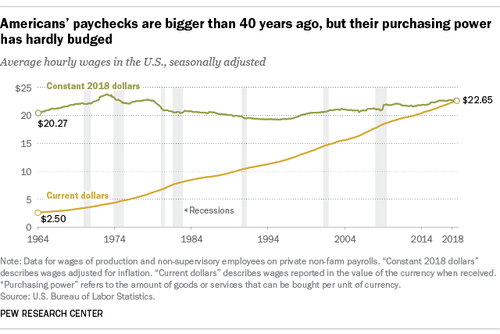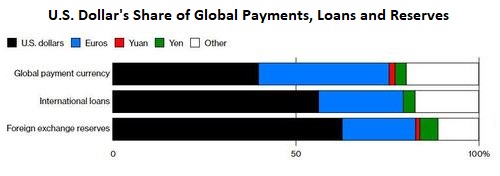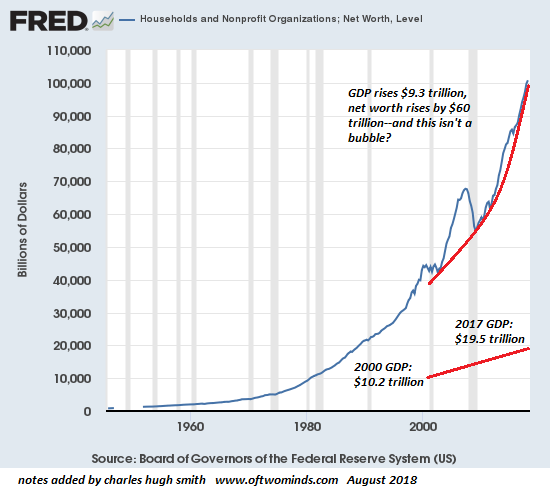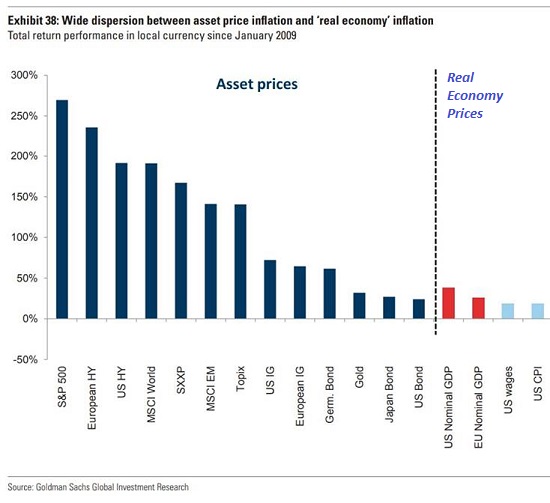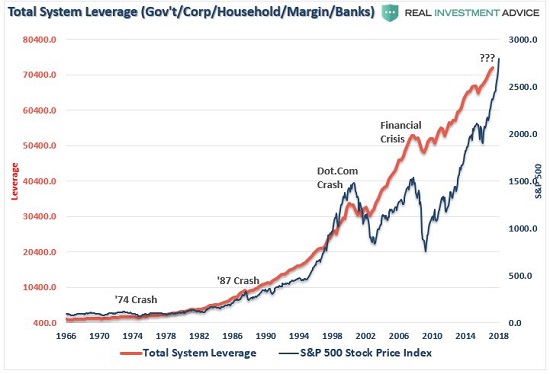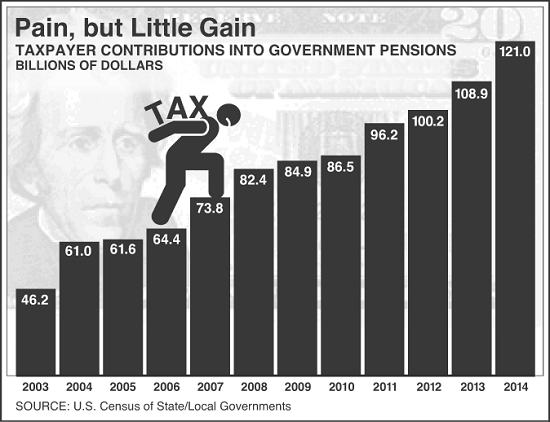A more humane, sustainable world lies just beyond the edge of the Status Quo.
Readers often ask me to post something hopeful, and I understand why: doom-and-gloom gets tiresome. Human beings need hope just as they need oxygen, and the destruction of the Status Quo via over-reach and internal contradictions doesn't leave much to be happy about.
The most hopeful thing in my mind is that the Status Quo is devolving from its internal contradictions and excesses. It is a perverse, intensely destructive system with powerful incentives for predation, exploitation, fraud and complicity.
A more humane, sustainable world lies just beyond the edge of the Status Quo.
I know many smart, well-informed people expect the worst once the Status Quo (the Savior State and its corporatocracy partners) devolves, and there is abundant evidence of the ugliness of human nature under duress.
But we should temper this Id ugliness with the stronger impulses of community and compassion. If greed and rapaciousness were the dominant forces within human nature, then the species would have either died out at its own hand or been limited to small savage populations kept in check by the predation of neighboring groups, none of which could expand much because inner conflict would limit their ability to grow.
The remarkable success of humanity as a species is not simply the result of a big brain, opposable thumbs, year-round sex or even language; it is ultimately the result of social and cultural associations that act as a "network" for storing knowledge and relationships-- what we call intellectual and social capital.
I have devoted significant portions of my books--
to an explanation of how community and self-reliance have atrophied under the relentless expansion of the Corporate-State autocracy.
The social capital and "return on investment" earned from investing time and energy in community and other social networks has been replaced by a check from the Central State--a transfer payment that surely beats the troublesome work of investing in community in terms of risk and return.
The net result of the Savior State dominating society and the economy is the rise of a pathological mindset of entitlement and resentment--the two are simply two sides of the same coin. You cannot separate them.
Once self-reliance has been lost, so too has self-confidence been lost, and the Savior State dependent--individual and corporation alike--soon distrusts their ability to function in an open market.
This is a truly sad, self-destructive state of affairs, and deeply, tragically ironic. The calls for "help" quickly lead to dependence on the Savior State, and that dependence quickly breeds complicity and silence in the face of repression and predation by the State and its corporate partners.
In a very real sense, citizens relinquish their citizenship along with their self-reliance and self-worth once they accept dependence on the State. Citizenship in the original Greek concept was not simply the granting of rights to do as one pleased; it also demanded a commitment to serve the interests of the many via personal sacrifice.
I often mention that the U.S. has much to learn from so-called Third World countries that are poorer in resources and credit. In many of these countries, the government is the police, the school and the infrastructure of roadways and energy. Many of these countries are systemically corrupt, and the State is the engine and enforcer of corruption.
Rather than something to be embraced and lobbied, involvement with the State is something to be avoided as a risk. As a result, people depend on their social capital and community for sustenance, support, work and connections.
This is not altruism, it is mutually beneficial.
Once a community dissolves into atomized individuals who each get a payment from the Central State, then they no longer need each other. Rather, other dependents on the State are viewed as competitors for the State's resources.
These atomized, isolated individuals have a perverse relationship with the State and what remains of the community around them: lacking the self-worth earned from work or engagement/investment in a community, then their only outlet for self-identity is consumption: what they wear, eat, drink, etc. as consumers. This lack of purpose and meaning is destructive to well-being; we all want to be needed and valued by our circle and society.
This dependence on the State also serves the State's goal, which is a passive, compliant populace of dependents, and distracted, passive workers who enrich the owners of corporations with their labor and pay their taxes to the state. This dependence on the State and a hollow consumerism are ontologically bound: each feeds the other.
The era of debt-based consumption as the engine of "growth" and "prosperity" is coming to an end. Adding debt no longer creates growth; it actually takes away from the economy by expanding debt service (interest payments).
The vast majority of developed-world people have had the basics of life since the late 1960s -- transport, food, shelter and utilities. The "growth" since then depended on cheap, abundant oil and a consumerist mentality in which one constantly re-defines and renews one's identity not from social investments in the shared community but from consumption of corporate goods and services funded by credit.
Not coincidentally, this dominance of consumption as the only metric for "growth" (as opposed to, say, productive activity) has been paralleled by the dominance of the Central State.
The end of credit-based consumption will be a very positive development, as will the devolution of the Savior State. The Savior State is like cheap oil--both are at their peaks and are starting their inevitable slide down the S-curve. The world they created was not as positive for human fulfillment and happiness as we have been told.
Indeed, study after study has found that people with the basics for life, a higher purpose that requires sacrifice and a tight-knit community are far and away happier than isolated, atomized, insecure consumers, regardless of their wealth and consumption.
This potential to re-humanize our economy and society is why I am hopeful.
Thank you, readers, correspondents, patrons and contributors for the wealth of ideas, encouragement and financial support you have bestowed on me over the past 13 years. My goal in 2019 is to offer content and capital that's worthy of your support of Of Two Minds.
NOTE: Contributions/subscriptions are acknowledged in the order received. Your name and email remain confidential and will not be given to any other individual, company or agency.
Thank you, Vincent B. ($5/month), for your marvelously generous pledge to this site -- I am greatly honored by your support and readership.
| |
Thank you, Barry B. ($50), for your splendidly generous contribution to this site -- I am greatly honored by your support and readership.
|
Read more...
